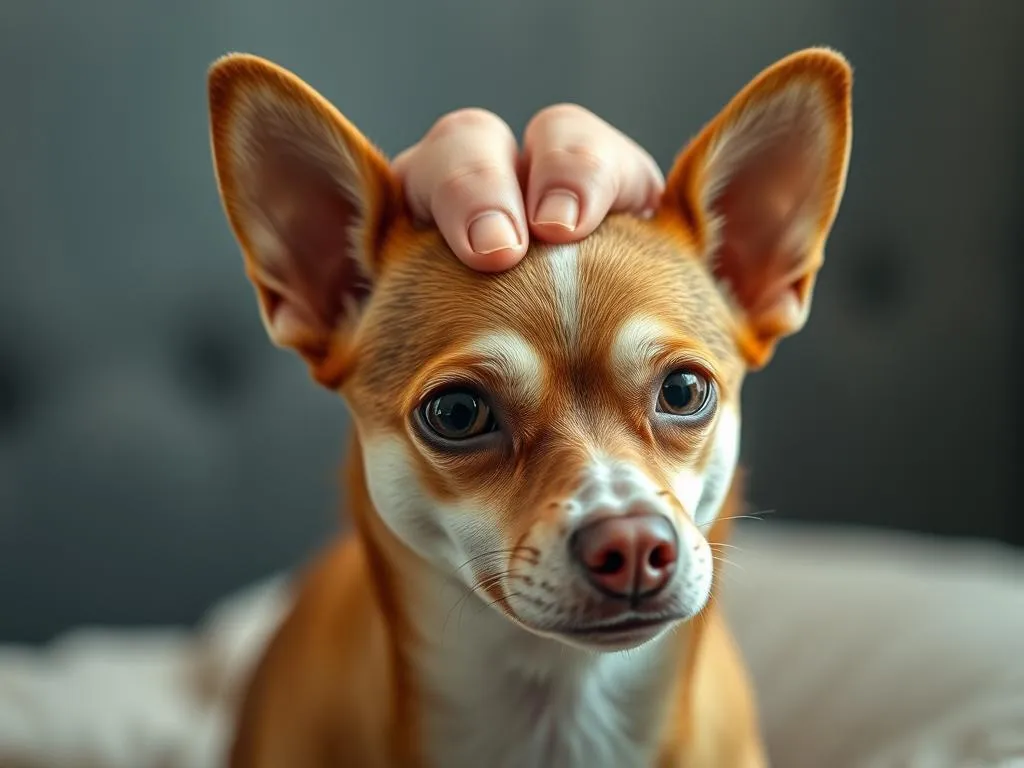
Understanding a dog’s health care involves much more than just physical attributes; it delves into the intricacies of their cognitive abilities and neurological health. One fascinating aspect of this is exploring how brain size can influence a dog’s overall well-being and behavior. When it comes to Chihuahuas, a breed known for its small stature, the question arises: how big is a Chihuahua’s brain? This inquiry is significant because it can lead to insights about their health, behavior, and the best ways to care for them.
Understanding Chihuahua Characteristics
Overview of Chihuahuas
Chihuahuas are one of the smallest dog breeds, typically weighing between 2 to 6 pounds and standing about 6 to 9 inches tall. They are known for their bold personalities, often acting much larger than their diminutive size suggests. Their lifespan ranges from 12 to 20 years, making them one of the longer-living dog breeds. With their popularity soaring in urban environments and as companion animals, Chihuahuas have garnered a reputation for being feisty, loyal, and occasionally, a bit temperamental.
Despite their charm, there are many misconceptions surrounding Chihuahuas. Some people view them as yappy or overly aggressive, but this behavior often stems from poor socialization or training rather than the breed itself. Understanding the true nature of Chihuahuas is essential for responsible ownership and health care.
Brain Size and Structure
The average size of a Chihuahua’s brain is quite small—approximately the size of a walnut. In comparison to larger breeds, their brain size is significantly less, which can impact various aspects of their behavior and cognitive abilities. While it’s easy to assume that a smaller brain may equate to lesser intelligence, this is not always the case. Cognitive capabilities can vary widely among individual dogs, regardless of size.
Chihuahuas are known for their strong personalities and can often exhibit behaviors that suggest a high level of intelligence, such as problem-solving and learning tricks. However, their small brain size may also predispose them to certain behavioral issues, which can be linked to their neurological health.
The Importance of Brain Health in Dogs
Brain Function and Dog Behavior
The relationship between brain size and cognitive functions is complex. While larger brains in dogs can correlate with better memory, learning abilities, and problem-solving skills, smaller breeds like Chihuahuas often compensate with their unique traits. Chihuahuas can be exceptionally trainable and responsive to commands, but they may struggle with certain types of complex tasks compared to larger breeds.
Behavioral issues in Chihuahuas, such as anxiety, aggression, or excessive barking, can sometimes be traced back to brain health. For instance, a lack of mental stimulation can lead to boredom, which may manifest as destructive behavior or hyperactivity. Understanding these links is crucial for dog owners looking to improve their pet’s behavior through proper health care.
Neurological Conditions in Dogs
Like any breed, Chihuahuas are susceptible to various neurological conditions. Common issues that may arise in small breeds include hydrocephalus, which is an accumulation of cerebrospinal fluid in the brain, and degenerative myelopathy, a progressive disease affecting the spinal cord.
Signs of neurological issues may include:
- Disorientation or confusion
- Seizures
- Uncoordinated movements
- Changes in behavior or temperament
It’s essential for Chihuahua owners to recognize these signs and consult a veterinarian promptly if they suspect any neurological problems.
Factors Influencing Dog Brain Health
Nutrition
Nutrition plays a pivotal role in maintaining optimal brain function in dogs. A well-balanced diet rich in high-quality protein, healthy fats, and essential vitamins is fundamental. Specific nutrients, such as omega-3 fatty acids, are known to support cognitive health. Foods rich in antioxidants, like blueberries and spinach, can also benefit brain function by combating oxidative stress.
Pet owners should ensure that their Chihuahua’s diet is tailored to their age, weight, and activity level to promote overall health and cognitive function. Consulting a veterinarian for dietary recommendations can help optimize a Chihuahua’s brain health.
Mental Stimulation
Just as physical exercise is vital for a dog’s body, mental stimulation is crucial for their cognitive well-being. Engaging activities that challenge a Chihuahua’s mind can include:
- Puzzle toys: Promote problem-solving skills.
- Training sessions: Reinforce commands and tricks while building a bond with the owner.
- Interactive play: Encourages engagement and socialization.
Regular socialization with other dogs and people is also essential in promoting a well-rounded demeanor. Mental stimulation can help stave off boredom and anxiety, leading to a happier, healthier Chihuahua.
Physical Health
A dog’s general physical health significantly impacts brain function. Conditions such as obesity can lead to various health issues, including diabetes and joint problems, which can indirectly affect brain health. Dental health is also critical; poor oral hygiene can lead to infections that may affect overall health.
Regular health check-ups and vaccinations are essential to catch any potential health issues early. Routine veterinary visits can help maintain a Chihuahua’s physical health and, by extension, their cognitive function.
Common Health Issues in Chihuahuas
Genetic Predispositions
Chihuahuas, like many purebred dogs, may be prone to specific hereditary health issues. Some of these include:
- Patellar luxation: A condition where the kneecap dislocates.
- Heart problems: Such as mitral valve disease.
- Eye issues: Including cataracts and glaucoma.
Neurological disorders, while less common, can also affect Chihuahuas. Owners should be aware of their dog’s family history and watch for any signs of health issues as they age.
Preventive Care
Preventive care is essential for maintaining a Chihuahua’s health. Regular veterinary visits allow for early detection of potential health issues. Vaccinations and parasite prevention strategies, such as flea and tick treatments, are also vital components of preventive care. Keeping up with a recommended vaccination schedule can protect against various preventable diseases.
Tips for Maintaining Dog Health Care
Regular Exercise
Even though Chihuahuas are small, they still require regular exercise to maintain their health. Daily walks, playtime, and interactive games help keep them physically fit and mentally stimulated. Recommended types of exercise for Chihuahuas include:
- Short walks: Tailored to their pace and stamina.
- Fetch: A fun way to engage their instincts.
- Agility training: Small obstacle courses can provide both physical and mental challenges.
Keeping Chihuahuas active is crucial for their overall health and can prevent obesity and related health issues.
Routine Veterinary Care
Routine veterinary care is vital for all dogs, but especially for small breeds like Chihuahuas who may have specific health concerns. Regular check-ups help monitor their health and allow for timely interventions if problems arise. A recommended vaccination schedule typically includes:
- Core vaccines: Such as rabies, distemper, and parvovirus.
- Non-core vaccines: Depending on lifestyle and risk factors, like Bordetella (kennel cough).
Establishing a good relationship with a veterinarian can make a significant difference in managing a Chihuahua’s health.
Healthy Diet Choices
Choosing the right food for a Chihuahua is crucial for their health. High-quality commercial dog food that meets their nutritional needs is generally recommended. Owners should also consider:
- Portion control: To prevent obesity, especially since Chihuahuas can be prone to weight gain.
- Avoiding harmful foods: Such as chocolate, grapes, and onions, which can be toxic to dogs.
Homemade diets should be approached with caution and ideally discussed with a veterinarian to ensure they are nutritionally balanced.
Conclusion
Understanding the implications of how big a Chihuahua’s brain is can offer valuable insights into their health and behavior. Brain size, while interesting, is just one factor influencing a Chihuahua’s overall well-being. By focusing on proper nutrition, mental stimulation, physical health, and preventive care, owners can significantly enhance their pet’s quality of life.
Proactive health care, combined with regular veterinary visits, can lead to happier and healthier Chihuahuas. By taking these steps, dog owners can ensure their furry companions thrive both mentally and physically.









